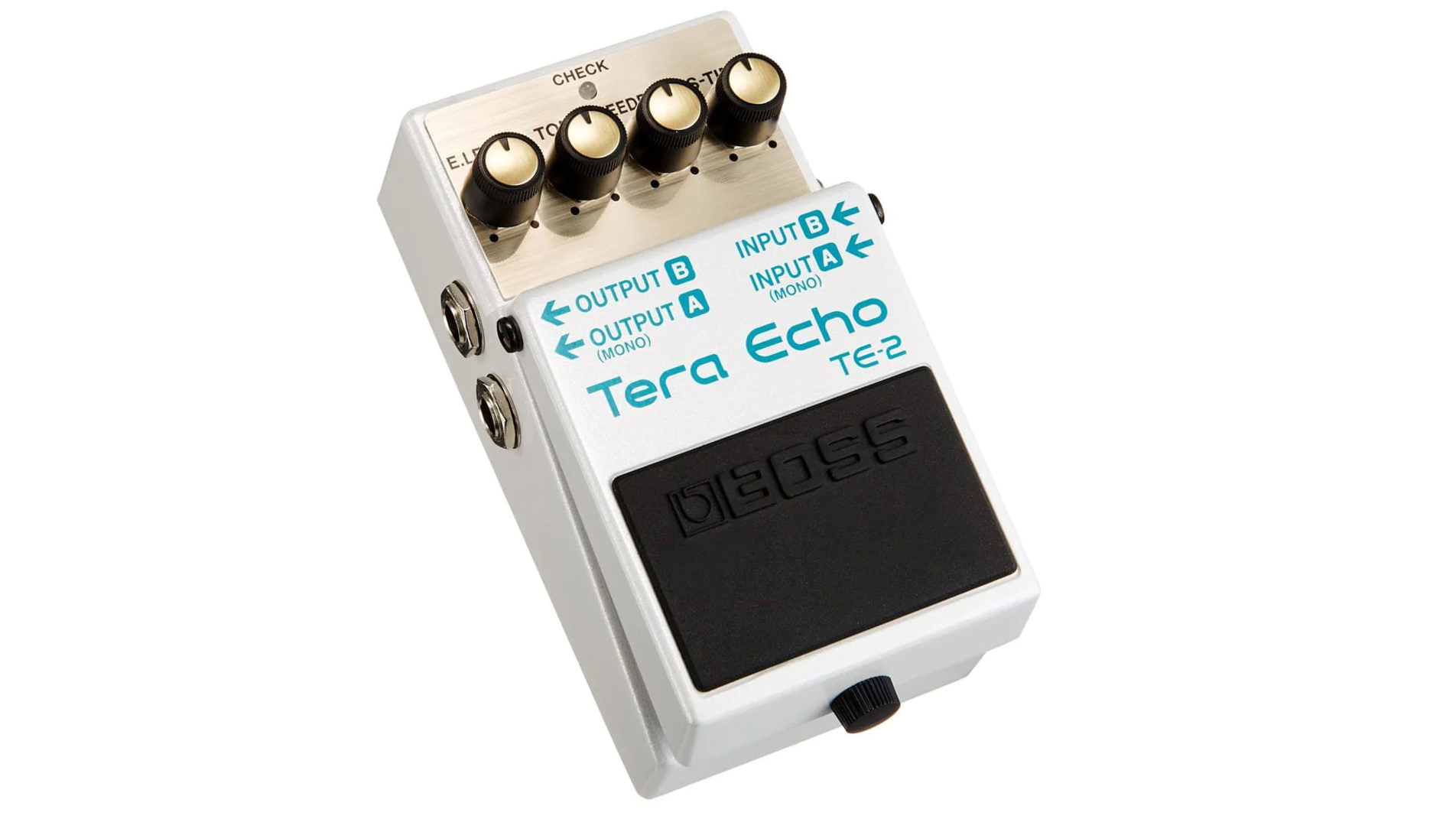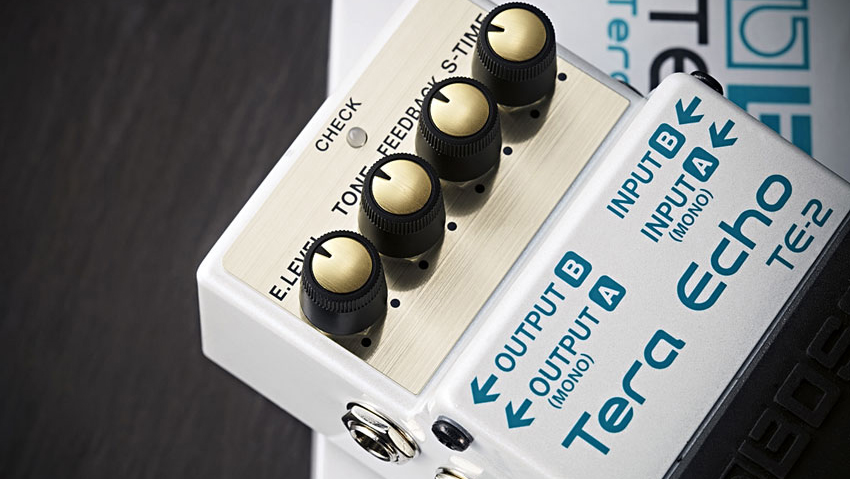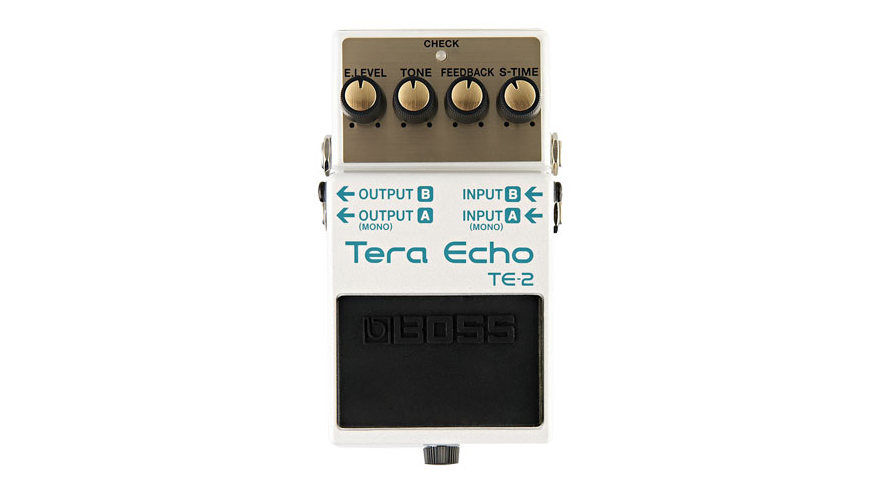
Want all the hottest music and gear news, reviews, deals, features and more, direct to your inbox? Sign up here.
You are now subscribed
Your newsletter sign-up was successful
Do you know what Boss's 100th compact pedal release was? The TE-2 Tera Echo, that's what. But being a numerical milestone is certainly not its only notable feature. The 'Adaptive Delay' pedal was ahead of the game to some extent when it emerged in 2013.
The Tera Echo boldly blurred the lines between delay and reverb pedal in ways other brands would follow, but it also did it in quite an innovative way that proved Boss's reputation isn't because it's a 'safe' choice for buyers; the Japanese company continues to innovate. And in the Tera Echo some of that feels underrated and it demands another look… and listen.

It should be noted the Tera Echo's algorithm was certainly not hidden in a cupboard at Boss HQ as the company moved on to new projects; they're available on the flagship DD-500 and DD-200, while the Tera Echo itself is still available to buy as a standalone pedal. And we're glad to see it, because the standalone TE-2 unit allows us to appreciate its strengths isolated away from some of the option paralysis – though value-packed features – associated with company's later multi-mode digital delay pedal offerings.
Boss fully embraced ambience here, not something it went into the pedal market openly touting before
The Tera Echo is unusual; Boss fully embraced ambience here, not something it went into the pedal market openly touting before, even though its designs like the Space Echo were certainly used that way by many players. And it was right to – because of the way it blends delay and reverb it's great for using to create expansive, trippy pad textures.
To deliver it, Boss designed Multi-Dimensional Processing. It sounds like something from Star Trek but it actually seems more akin to AI in function: the idea is that it analyses your guitar signals and applies what it decides are optimum effect settings in real-time. And that includes being 'ultra-responsive' to playing and volume changes with touch sensitivity activating heavier filtering the harder you play. Boss was all-in on this technology, using it in its MO-2 Multi Overtone and DA-2 Adaptive Distortion too. We might have to come back to those dark horses in another installment of unsung effects!
For those who like to 'play the effect' rather than colouring their existing guitar parts, the Tera Echo is a very appealing proposition in the way it swirls around your notes with added layers.

The delay sounds encompass slapback to medium-length times and the control can adjust the warmth of repeats / pad sounds, or cool things down with sharper filtering. The pedal also includes a freeze hold switch function to play over infinitely sustained parts, or simply emphasise parts as required.
Want all the hottest music and gear news, reviews, deals, features and more, direct to your inbox? Sign up here.
The S-Time is the most intriguing-sounding control name on the TE-2; it stands for Spread Time. The more you add the slower the delay time becomes. Combine that with the feedback and things get pretty damn… spacey.
Add in stereo input and output and you have something post-rockers and sonic adventurers can really have fun with. Plus the rest of us who want something inspiring for playing at home. And the sounds of the TE-2 can be found on the aforementioned DD-200 and DD-500 Boss Digital Delay pedals under the Tera Echo mode, so more players can enjoy this fascinating and hugely underrated blend of reverb and delay.
Find out more about the Boss TE-2 at Boss, Andertons, Thomann and Sweetwater.

Rob is the Reviews Editor for GuitarWorld.com and MusicRadar guitars, so spends most of his waking hours (and beyond) thinking about and trying the latest gear while making sure our reviews team is giving you thorough and honest tests of it. He's worked for guitar mags and sites as a writer and editor for nearly 20 years but still winces at the thought of restringing anything with a Floyd Rose.



